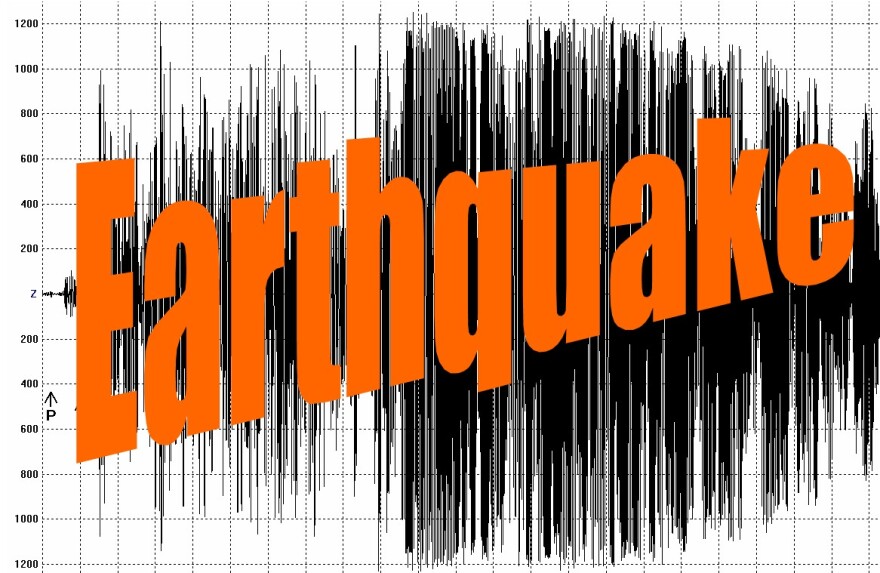There is concern among many seismologists that waste fluid disposal wells used by the oil and gas industry could be causing earthquakes. The consensus is growing, but it’s not unanimous. There is, however, one thing these scientists agree on — even skeptics, like the Oklahoma Geological Survey’s Austin Holland:
(AUSTIN HOLLAND) “In order to tell whether an earthquake was induced by man’s activities or not, we really need the kind of data that isn’t collected ahead of time.”
Proving a link between earthquakes and disposal wells hinges on time, location and pressure. Time and location are pretty easy. We know when earthquakes happen. And we know where Oklahoma’s 4,000 active disposal wells are located. But all the seismologists StateImpact interviewed said the same thing: We simply don’t know enough about how much pressure fluid disposal is building up underground. The available data on pressure isn’t enough. The University of Oklahoma’s Katie Keranen sums it up:
(KATIE KERANEN) “What we really need are reservoir pressure data. We actually need to see the pressure within the reservoir in the subsurface to fully establish these links. And those data are usually not available.”
In Oklahoma, disposal well operators are required to record pressure measurements at the surface, and they have to file that information with the state Corporation Commission. But Oklahoma’s oil and gas regulator doesn’t require operators to monitor pressure underground. And Oklahoma isn’t alone. StateImpact surveyed the regulations of other oil and gas states and couldn’t find any such requirements. But seismologists, like the U.S Geological Survey’s Bill Ellsworth, say they need it — and they can’t get it on their own.
(BILL ELLSWORTH) “It would have to be something the operators are collecting.”
And seismologists say there’s a good chance that some disposal well operators are collecting this data. They’re just not sharing it with state and federal researchers. We reached out to some of the biggest operators for comment, but our requests went unanswered. Seismologist Katie Keranen:
(KATIE KERANEN) “Many things we can’t prove, but having this additional data would give us that possibility.”
Since this data could be used to connect oil and gas activity with earthquakes, it’s easy to understand why an operator might not want to share it. If they have it. There has been an exponential increase in earthquakes in Oklahoma since 2009. Most of the quakes are small, but a November 2011 earthquake — the state’s largest in a century — damaged 200 buildings. Industry regulators in states like Colorado are considering seismicity when they issue permits. But no regulation changes have been proposed in Oklahoma, says the Corporation Commission’s Matt Skinner. The agency is keeping an “open mind” about new research on the connection between disposal wells and earthquakes. But, before any new laws are considered, a ...
(MATT SKINNER) “Scientific conclusion will have to come from the Geological Survey. What to do about the scientific conclusion will have to come from the commissioners.”
But what about the larger issue? Are energy companies themselves looking into the possibility that earthquakes could be linked to the waste fluids the industry pumps into the ground? Federal and state seismologists say it’s likely. But none of Oklahoma’s biggest producers — Apache, Chesapeake, Devon, SandRidge, Sheridan — would talk to StateImpact about it. A few companies referred our questions to the Oklahoma Independent Petroleum Association. OIPA President Mike Terry can’t speak for the internal operations at any one company, but knows of no collaborative effort among energy companies to study the issue. Terry says it’s all up to the Oklahoma Geological survey:
(MIKE TERRY) “The Geological Survey, to my knowledge, is pretty well staffed. I don’t know what their shortcomings are, and what they feel like they need. If it’s bigger computers, I don’t know...”
(JOE IN INTERVIEW) “Well, the Geological Survey has one full-time earthquake seismologist.”
(MIKE TERRY) “Oh, really?”
For StateImpact, I’m Joe Wertz.


